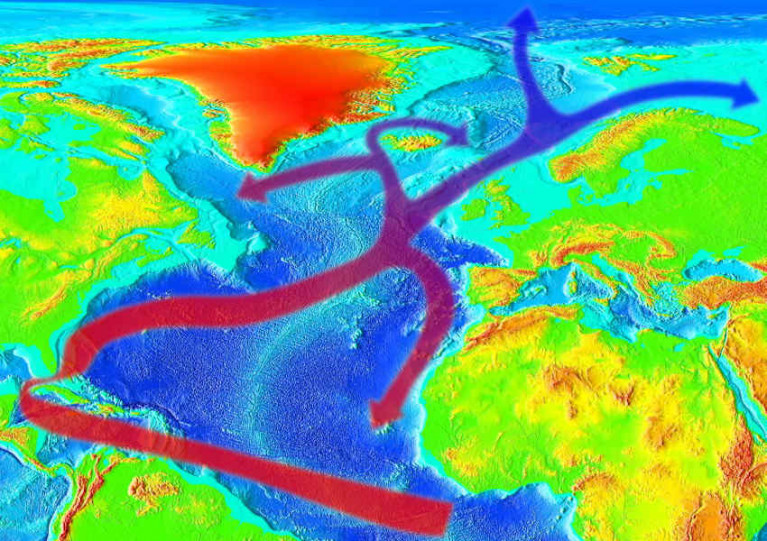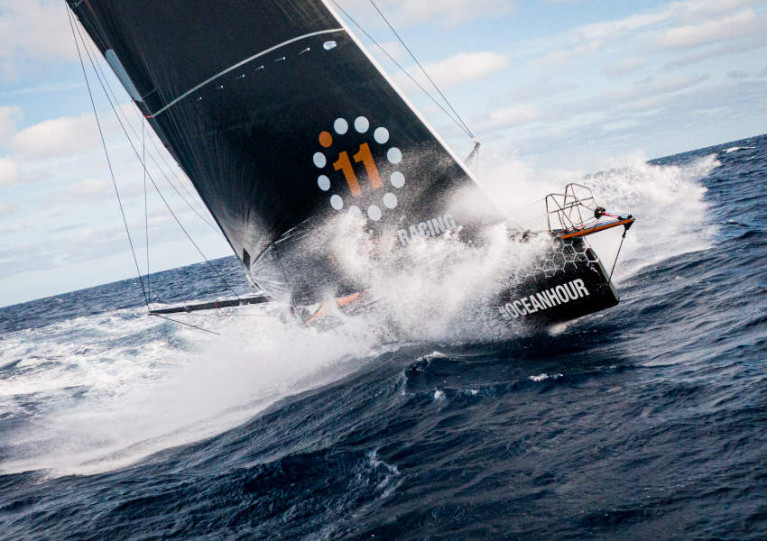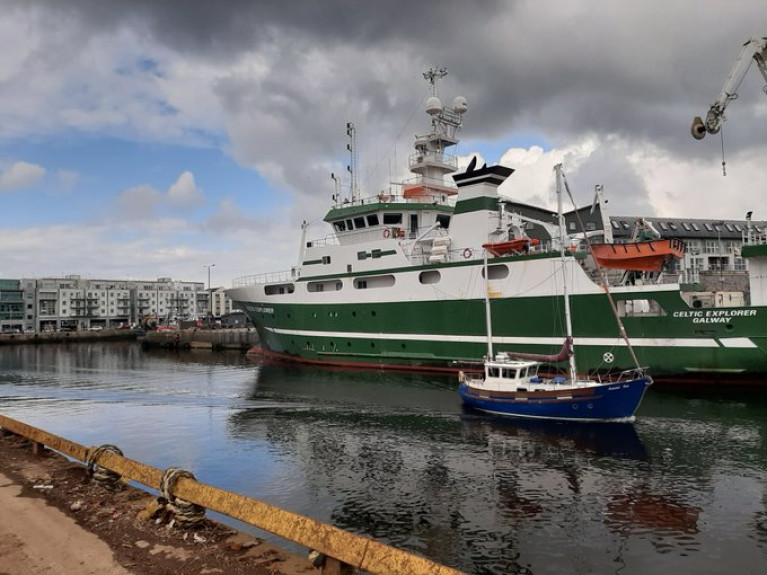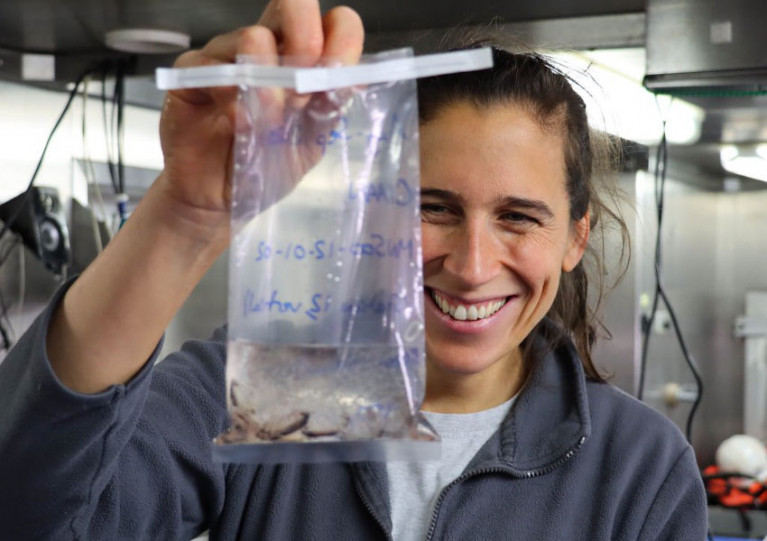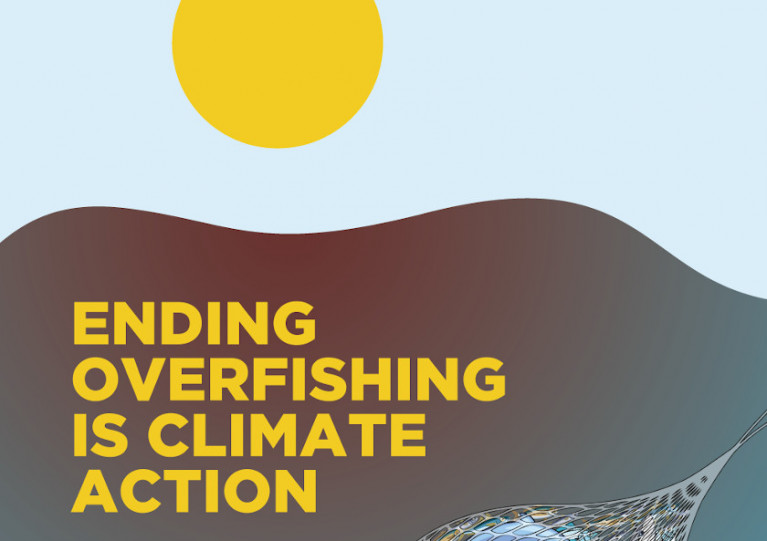Displaying items by tag: Climate Change
Killarney to Host International Aquaculture Symposium This June
The 2022 EIFAAC Symposium will be hosted by Inland Fisheries Ireland and the Department of the Environment, Climate and Communications at Randles Hotel in Killarney on 20-21 June.
The rubric for the 31st symposium of the European Inland Fisheries and Aquaculture Advisory Commission — the first since Dresden, Germany in September 2019 — is ‘Advances in Technology, Stock Assessment and Citizen Science in an Era of Climate Change’.
Four themes have been identified for the symposium relating to inland fish stock assessment, developments in freshwater fish monitoring technologies, assessing the impacts of climate change on freshwater fish and their habitats and the role of citizen science. The fifth theme will focus on the pros and cons of traditional vs recirculation aquaculture systems.
Abstract submission is open for presenters until this Friday 18 February. Notification of acceptance letters all be sent on 25 March and presenting authors will have until 28 March to register. The deadline for submission of manuscripts/presentations is 13 June, one week before the symposium.
For those wishing to attend, early-bird registration is now open at €120 (students €80) until 1 April. Payment made after this date will incur an extra administration charge of €20.
For more details on attending the conference, see the IFI website HERE.
Young Boy Joins Grassroots Effort to Protect Vulnerable Seagrass Meadows
In Co Wexford, a seven-year-old boy has joined the grassroots effort to conserve vulnerable seagrass beds around Ireland’s coastline.
According to RTÉ News, Shem Berry has lent a helping hand to volunteers who have been clearing an invasive seaweed, Sargassum muticum, which smothers a seagrass meadow at Kilmore Quay.
Seagrass meadows are considered key ‘blue carbon’ habitats, acting as a natural carbon-capture store while also filtering sediments, keeping shorelines stable and providing a safe home for inshore marine wildlife.
“I think it’s important to look after the environment, not only on land, but on the sea,” said Shem.
As previously reported on Afloat.ie, environmental NGO Coastwatch has called for seagrass habitats to be specified for protection under the State’s new marine planning legislation.
RTÉ News has more on the story HERE.
Space agencies in Europe and the US have signed a partnership to monitor rising sea levels and temperatures, melting ice, thawing permafrost and other impacts of climate breakdown.
NASA in the US and the European Space Agency (ESA) formalised the partnership this week with a “statement of intent”.
The agreement signed by ESA director-general Josef Aschbacher and NASA administrator Bill Nelson aims to “pave the way to leading a global response to climate change”, the organisations state.
“Climate change is an all-hands-on-deck, global challenge that requires action – now,” Nelson said.
“NASA and ESA are leading the way in space, building an unprecedented strategic partnership in Earth science,” he said.
“ This agreement will set the standard for future international collaboration, providing the information that is so essential for tackling the challenges posed by climate change and helping to answer and address the most pressing questions in Earth science for the benefit of the US, Europe, and the world,” he added.
This is not the first time ESA and NASA have joined forces – both bodies worked together on field campaigns in the Arctic to validate respective missions.
The two agencies also work together and with other partners on the recently launched Copernicus Sentinel-6 mission, a new project to extend the long-term record of sea-level rise.
In May, NASA announced its Earth System Observatory, which will design a new set of Earth-focused missions to provide key information to guide efforts related to climate change, disaster mitigation, fighting forest fires, and improving real-time agricultural processes.
This week’s joint statement of intent “complements activities underway for the Earth System Observatory”, they state.
Both ESA and NASA are currently defining a new gravity mission to shed new light on essential processes of the Earth system, such as the water cycle.
This will ‘weigh’ water in its various locations, such as underground and in the oceans, to understand water mass distribution and transport, they explain.
Josef Aschbacher said that “without doubt, space is the best vantage point to measure and monitor climate change, but joining forces is also key to tackling this global issue”.
“Timing is also important, particularly as we look to the COP26 climate conference later this year, where we have the chance to further make space an integral part of the solution when it comes to climate-change mitigation,” he said.
Marine Institute To Launch Funding Call Aimed at Capturing Ireland’s ‘Blue Carbon’ Potential
This month the Marine Institute will launch a funding call for a major programme of marine science research in the area of ‘blue carbon’.
The absorption and storage of atmospheric carbon dioxide in the world’s oceans and coastal regions has been identified as one of the ways in which marine ecosystems can reduce the impacts of climate change.
Funding of up to €1.6m has been earmarked for the call to support a large-scale research project to run from 2021 to 2026.
Launched in June 2020, Ireland’s Programme for Government recognised the “the enormous blue carbon potential that the ocean has to offer in tackling climate change”.
Collaborative research initiative
The Government tasked the Marine Institute — the State agency responsible for marine research and innovation — with a collaborative research initiative, aimed at investigating the climate-change mitigation potential of blue carbon and working towards creating an inventory that will assist the EU in meeting Ireland’s climate-change objectives.
In order to prepare the ground for such a large-scale research programme, the Marine Institute commissioned a synthesis report to review existing knowledge on blue carbon habitats and their role as carbon sinks in Ireland. This report was published in May 2021.
“Blue carbon refers to carbon which is stored, or sequestered, in the ocean and in vegetated habitats around coastal regions,” explains the report’s lead author Dr Grace Cott, assistant professor at the UCD School of Biology and Environmental Science.
“In terms of blue carbon which we can actively manage, what we are really referring to is the vegetation in coastal regions, and that means three main habitats: firstly, mangrove forests — which we don’t have in Ireland and are mostly found in tropical regions — secondly, salt-marsh habitats and finally, seagrass meadows.”
From photosynthesis to sediment trapping
Carbon sequestration — the long-term capture and storage of carbon dioxide (CO2) from the atmosphere – can take place through a range of natural processes, from photosynthesis to sediment trapping, where carbon-based sediments from the tide are physically trapped by vegetation.
The Marine Institute report points out that Ireland’s tidally influenced coastal wetlands comprise approximately 160 square kilometres of salt-marsh and seagrass beds. Globally, although these habitats represent a much smaller area than terrestrial forests, their total contribution to long-term carbon storage is comparable to carbon sinks in tropical forests.
According to Dr Cott, salt marshes in Ireland are up to 10 times more efficient than agricultural grasslands at storing carbon on a per area basis. This is mainly due to the lack of microbial decomposition in these wet regions, which inland causes the release of carbon from the soil as carbon dioxide.
Supporting blue carbon into the future
The loss and destruction of vegetated coastal ecosystems threatens their ability to function as long-term carbon sinks, and mismanagement can lead to the release of stored carbon back into the atmosphere, says Dr Cott.
“But there is hope in the management of these resources,” she explains. “Even though researchers need to conduct further research into the matter, we are already becoming aware of certain strategies which can help preserve our blue carbon habitats around the Irish coast.”
These include allowing salt mash habitats to migrate inland, and improving water quality to optimise carbon capture in seagrass beds.
“Looking ahead, I believe that Ireland will need an appropriate management framework, led by Government, to enhance protection of these habitats in relation to carbon sequestration,” Dr Cott adds.
Ursula Von Der Leyen to Join Leading Speakers at The Ocean Race Summit Europe Next Month
European Commission president Ursula Von Der Leyen will be among the speakers at a high-level summit hosted by the organisers of The Ocean Race Europe next month.
The Ocean Race Summit Europe on Wednesday 16 June aims to help drive new and improved policies to tackle some of the most urgent issues facing our blue planet — from the impact of climate change to the lack of governance and protection for our sea and whether the ocean should be given ‘rights’.
Von Der Leyen and Brussels colleague Virginijus Sinkevičius, European Commissioner for Environment, Ocean and Fisheries will virtually join a diverse group of speakers and exclusively invited participants from across the world — comprising leading experts from the worlds of government, science, industry, NGOs, media and sport.
Among them are Mumta Ito, lawyer and Founder of the NGO Nature’s Rights, who will reveal why giving the ocean rights could help to ensure its future, and Tommy E Remengesau, former president of the Republic of Palau, who will discuss leading the way in ocean protection.
Alongside these leading voices will be the unique perspectives of sailors, who have unrivalled experiences of the ocean. Annie Lush from Offshore Team Germany will reveal what life is like on the high seas and how offshore racers are helping scientists understand climate and weather systems.
Other confirmed speakers include:
- Pascal Lamy, president of the Paris Peace Forum and chair of the EU Mission Starfish 2030, talking on the ambitious mission to revamp ocean governance;
- Dr Emily Pidgeon, vice president of Ocean Science and Innovation, talking about the importance of including the ocean in the climate conversation;
- Teresa Ribera, Fourth Deputy Vice President and Minister for Ecological Transition for Spain, on the need to protect 30% of the ocean by 2030;
- Valerie Cabanes, international law expert and co-founder of End Ecocide on Earth, who will reveal what ecocide means for people and nature; and
- Manu San Felix, marine biologist from Ibiza Preservation and a specialist in the protection of posidonia (seagrass), who will highlight how the ocean can be a hero in the climate crisis.
 The Ocean Race Summit in Newport, Rhode Island gathered over 680 registered participants from around the world | Credit: Ainhoa Sanchez/The Ocean Race
The Ocean Race Summit in Newport, Rhode Island gathered over 680 registered participants from around the world | Credit: Ainhoa Sanchez/The Ocean Race
Hosted by renowned television presenter and science communicator Danni Washington, the event will also be held virtually — featuring local speakers live from The Ocean Race’s home city of Alicante in Spain with a live link to Brussels.
Richard Brisius, race chairman of The Ocean Race, said: “We have one ocean, but the way it is protected and governed is splintered. When you add to this the impact of climate change, it is a recipe for disaster for our marine world. We urgently need to create a better system, with collaboration at the heart of it.
“Sailors in The Ocean Race have seen more of the ocean, and its decline, than most people on the planet. Our Race is all about teamwork, overcoming challenges and achieving the extraordinary.
“We can apply this through our summits, to help drive change for the ocean. Sport has the power to make a real difference for the planet and we are going to do all we can to make the most of this opportunity.”
The summit will be live-streamed on The Ocean Race: Racing with Purpose YouTube channel and takes place during The Ocean Race Europe, which starts on 29 May in Lorient, France and finishes in Genoa, Italy with a coastal race on 19 June.
Ireland is represented in an international team of researchers who have identified a possible link between human-caused climate change and a weakening of the Gulf Stream.
And as The Irish Times reports, a continued weakening of the Atlantic Ocean current system could mean more extreme weather for Ireland — and an end to our typically mild climate.
The researchers’ study, published in journal Nature Geoscience, used a variety of sources to plot the history of the flow of the Gulf Stream: the Atlantic Ocean current that pulls warm water from the equator north while pushing colder water south and, via its extension as the North Atlantic Drift, gives Ireland and the UK our mild, wet weather.
Maynooth University’s Dr Levke Caesar, lead author on the study, said the team combined three different types of data — including deep-sea sediment samples dating back many centuries — to reveal “a robust picture of the overturning circulation” in the Atlantic.
It’s this picture that’s a worrying one for climate scientists, as it shows a distinct weakening of the Gulf Stream’s flow since the mid 20th century, and a trend that suggests it could reach a tipping point by the end of this century.
The Irish Times has more on the story HERE.
The Ocean Race Uses Cutting-Edge Science Equipment to Step Up Its Environmental Role
The 2022-23 edition of The Ocean Race is set to mark a sea change in its commitment to the environment by expanding the gathering of scientific data across the fleet.
On a recent transatlantic crossing by 11th Hour Racing Team — captained by Cork sailor James O’Mahony, with race veteran Damian Foxall as sustainability programme manager — high-quality oceanographic data was relayed ashore in real-time to improve models and predictions on ocean health and climate.
During the August voyage the boat’s crew used an onboard OceanPack — a device which records essential ocean data including surface temperature, salinity and dissolved CO2 — to sample seawater on a continuous basis and transmit the data live, rather than on arrival in port as in the last edition of the race.
The crew aboard the IMOCA 60 racing yacht also deployed a Drifter Buoy on the passage from France to Rhode Island in a target area where there is a gap in buoy coverage, for long-term real-time monitoring of ocean conditions.
“We want to build on the amazing success of our award-winning Sustainability Programme during the 2017-18 edition, which led the way in terms of offshore ocean data collection by a sailing event,” said Anne-Cécile Turner, The Ocean Race’s sustainability director.
“Everything we are doing under our new Racing with Purpose initiative, which has been developed in collaboration with 11th Hour Racing — our founding sustainability partner as well as the premier partner of the race — is aimed at taking that legacy and accelerating action to improve ocean health.”
She added: “The new and pioneering scientific equipment, now 30% lighter and 20% more energy efficient, is yet another example of the innovative record of onboard instrumentation.
“And, paired with the fact that teams on The Ocean Race go deep into some of the most remote areas on the planet like the Southern Ocean, it means that we are again in a unique position to contribute, this time to gather real-time scientific data to help inform decision making.”
Scientists from Ireland Led Team Investigating Climate Change Return to Port of Galway
Scientists led by an Irish team on board the Marine Institute’s RV Celtic Explorer (returned yesterday) to the Port of Galway, after 24 days in the Nordic and Greenland Seas to investigate past climate change in the Arctic region.
Scientists involved, reports GalwayBay FM, were from NUI Galway, University of Southampton UK, University of Bremen, Germany, and Bergen University Norway, have been monitoring and capturing a record of temperature, salinity and the carbonate system
Lead scientist, Dr Audrey Morley, School of Geography and Archaeology, NUI Galway says their research is unique, as they are assessing how essential climate variables have evolved since before pre-industrial conditions.
The survey aims to define a more comprehensive description of the Nordic Seas ecosystem and provide insight into how essential climate variables are recorded in geologic archives.
Click here for more on the story and also the survey which examined the past to assist in understanding the future of climate change.
Irish-Led Marine Science Mission Studies Past Climate Change To Predict The Future
An Irish-led team of marine scientists on board the RV Celtic Explorer returns to Galway Harbour today (Wednesday 16 September) after more than three weeks investigating historic climate change in the Arctic region.
Scientists from NUI Galway, University of Southampton, University of Bremen and Bergen University had been capturing data in the Nordic and Greenland Seas as part of the CIAAN survey (Constraining the Impact of Arctic Amplification in the Nordic Sea: A biogeochemical approach).
This survey aims to provide new insight into how essential climate variables are recorded in geologic archives.
Assessing the impact and magnitude of past (pre-industrial) climate changes is critical to further our understanding of how the climate system will respond to a rapidly changing Arctic ecosystem, the scientists explain.
‘One of the key challenges in climate change science is assessing the magnitude of future climate change’
Lead scientist Dr Audrey Morley, from the School of Geography and Archaeology at NUI Galway, says: “One of the key challenges in climate change science is assessing the magnitude of future climate change, due to our short observational records which are limited to the past 150 years.
“Our research is unique, as we are not only observing modern essential climate variables, but we will also look into the past to assess how essential climate variables have evolved since before pre-industrial conditions.
“This long-term perspective is crucial and will help us to better understand our environment and the environmental consequences of human activities.”
Dr Morley notes that the Arctic is an especially sensitive and vulnerable environment with regards to contemporary climate change.
“The North Atlantic and Nordic Seas are a key region for the formation of North Atlantic deepwater and the uptake of atmospheric carbon dioxide. Whether or not this region will remain a carbon sink during rapidly warming climates is a question that remains to be answered,” she says.
As part of this research survey, the RV Celtic Explorer travelled to 79 degrees north in the Greenland Sea, which is the highest latitude reached by the marine research vessel.
‘The RV Celtic Explorer is crucial to facilitate this type of international research’
In order to operate in the Arctic region, the RV Celtic Explorer was required to obtain a Polar Code Certification — becoming the first Irish vessel to achieve this status, which greatly increases its ocean research capabilities.
“The RV Celtic Explorer is crucial to facilitate this type of international research,” says Marine Institute chief executive Dr Paul Connolly.
“This research in the Arctic region will deepen our knowledge of the region and will improve models that can forecast changes to our oceans and climate. This will inform effective policy and management decisions to meet the challenges posed by climate change.”
More Than 300 Scientists Sign Statement Urging EU To End Overfishing & Protect Ocean Health
Scientists from GMIT, NUI Galway, UCD, Trinity College, UCC and Queen’s in Belfast are among the signatories to a statement calling for an end to overfishing in European waters “as an urgent and necessary response to the biodiversity and climate crises”.
The message was delivered to EU Commissioner for the Environment, Oceans and Fisheries, Virginijus Sinkevičius this week as part of a statement signed by more than 300 scientists in support of the Our Fish campaign.
These experts urge the EU to set fishing limits within scientific advice and recognise that “ecosystem-based fisheries management is critical to the health of the ocean and its capacity to respond to climate change”.
“Overfishing and bycatch are the largest drivers of biodiversity loss in the ocean”, said Prof Alex Rogers, science director for research initiative REV Ocean. “We need a healthy and productive ocean, and ending overfishing is key.
“This is especially the case when faced with the effects of climate disruption, which affects the whole ocean, including fish stocks themselves.
“As a scientist, I am calling on the EU to recognise that ecosystem-based fisheries management is critical to the health of the ocean and its capacity to respond to climate change. It is also vital for human health, including that of future generations”.
Rebecca Hubbard, programme director of Our Fish, added: “Just like with our own health, if we continue to batter the ocean with overfishing, the whole system will weaken further, until it can no longer provide us with the life-support we need it for — oxygen, climate regulation, food and jobs.
“The EU must stop dragging its feet and take this clear and decisive action now, before it’s too late.”
The statement and its signatories can be read below:




























